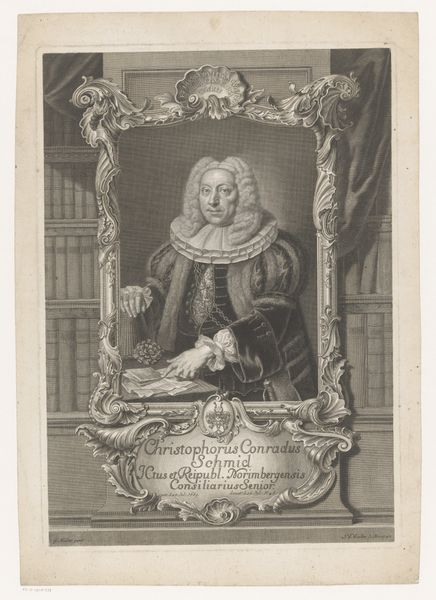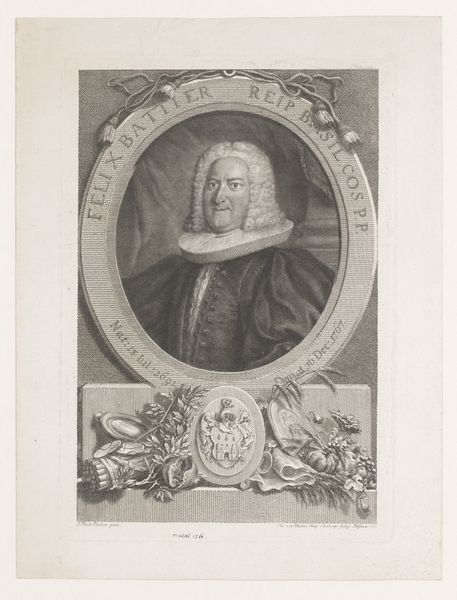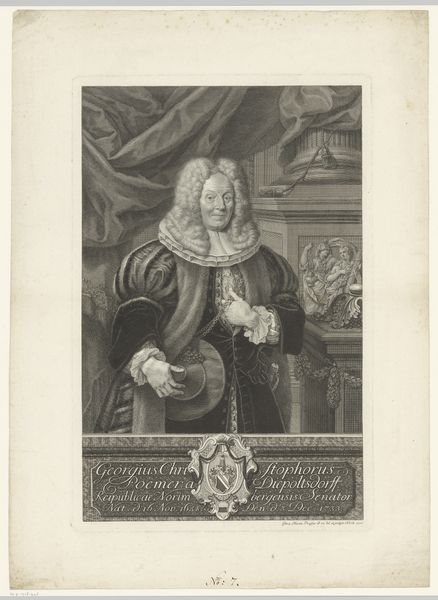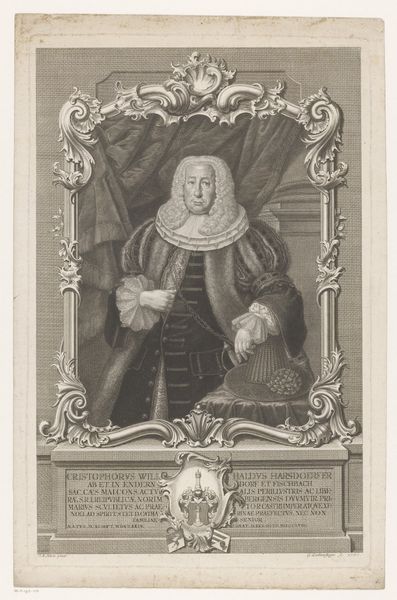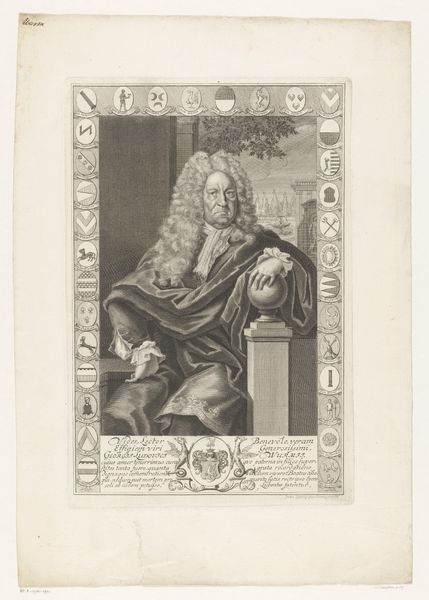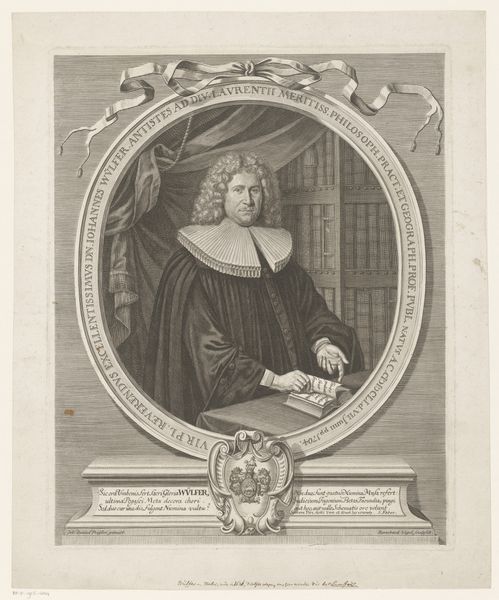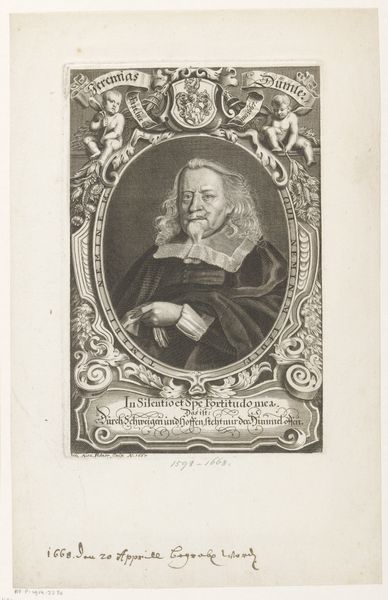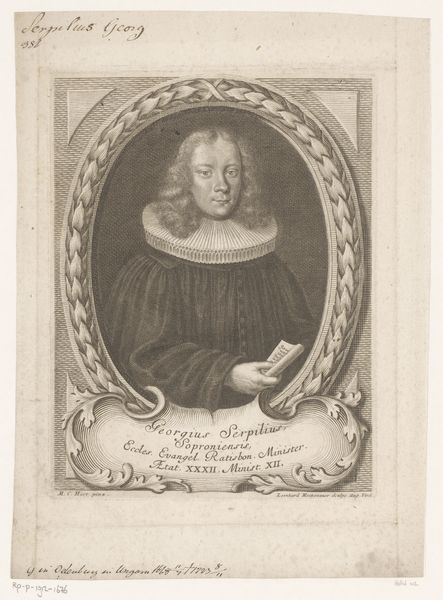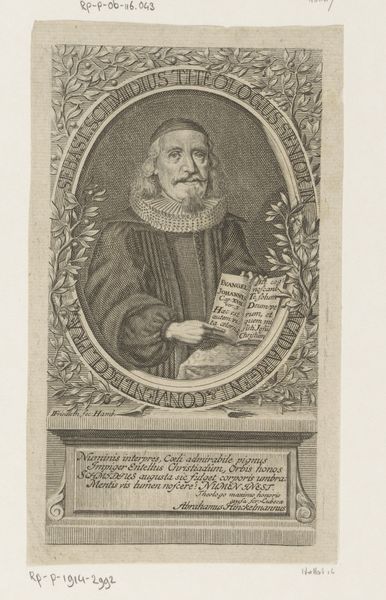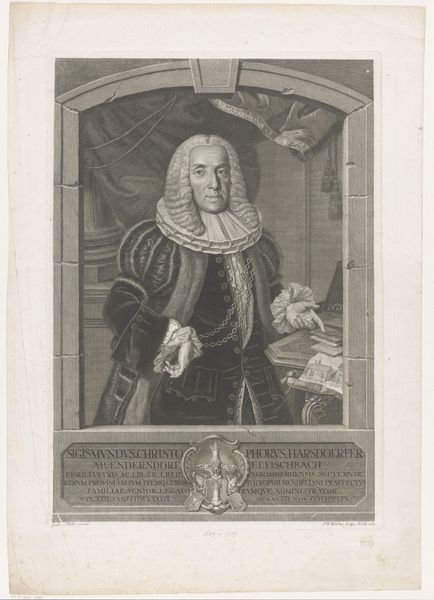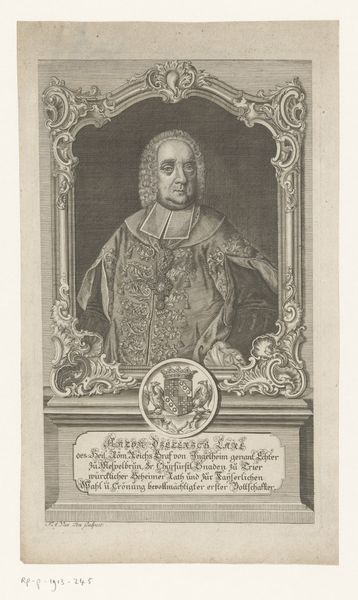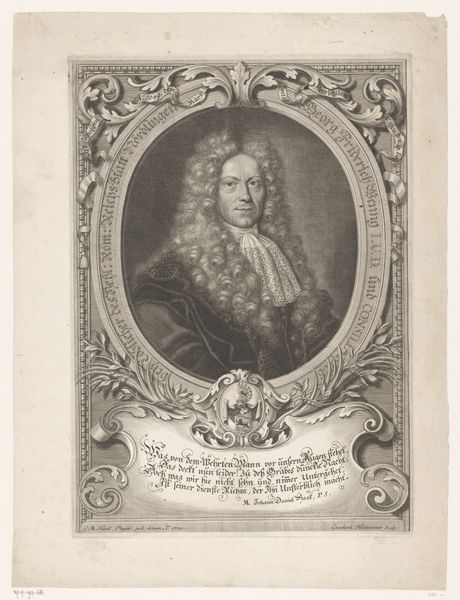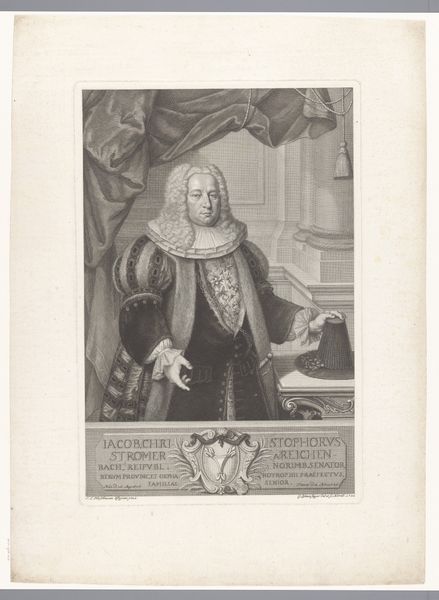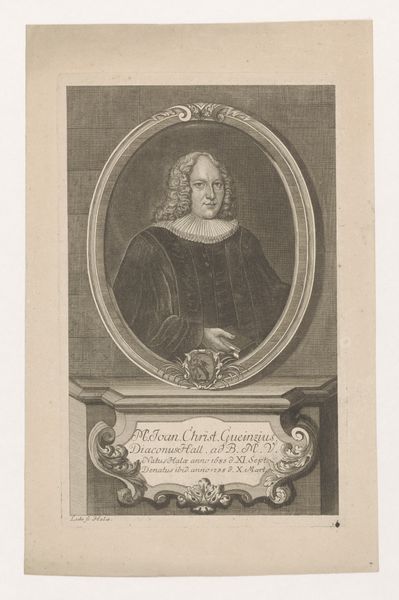
Dimensions: height 465 mm, width 317 mm
Copyright: Rijks Museum: Open Domain
This portrait of Georg Christoph Erlabeck was made by Johann Wilhelm Windter, likely in the first half of the 18th century. It is an engraving, a printmaking technique that demands a high degree of skill and precision. The engraver would have used a tool called a burin to carve lines directly into a metal plate, which would then be inked and printed. Look closely and you’ll see a dense network of fine lines, carefully placed to create areas of light and shadow, texture, and detail. Think about the labor involved, the hours of concentrated work required to produce such a detailed image. Engravings like this one were often used to reproduce portraits, making them available to a wider audience. In that sense, the print medium is tied to broader issues of labor, politics, and consumption. By understanding the process, we can appreciate not just the image itself, but also the social context in which it was made and circulated. It challenges any distinction between craft and fine art.
Comments
No comments
Be the first to comment and join the conversation on the ultimate creative platform.
